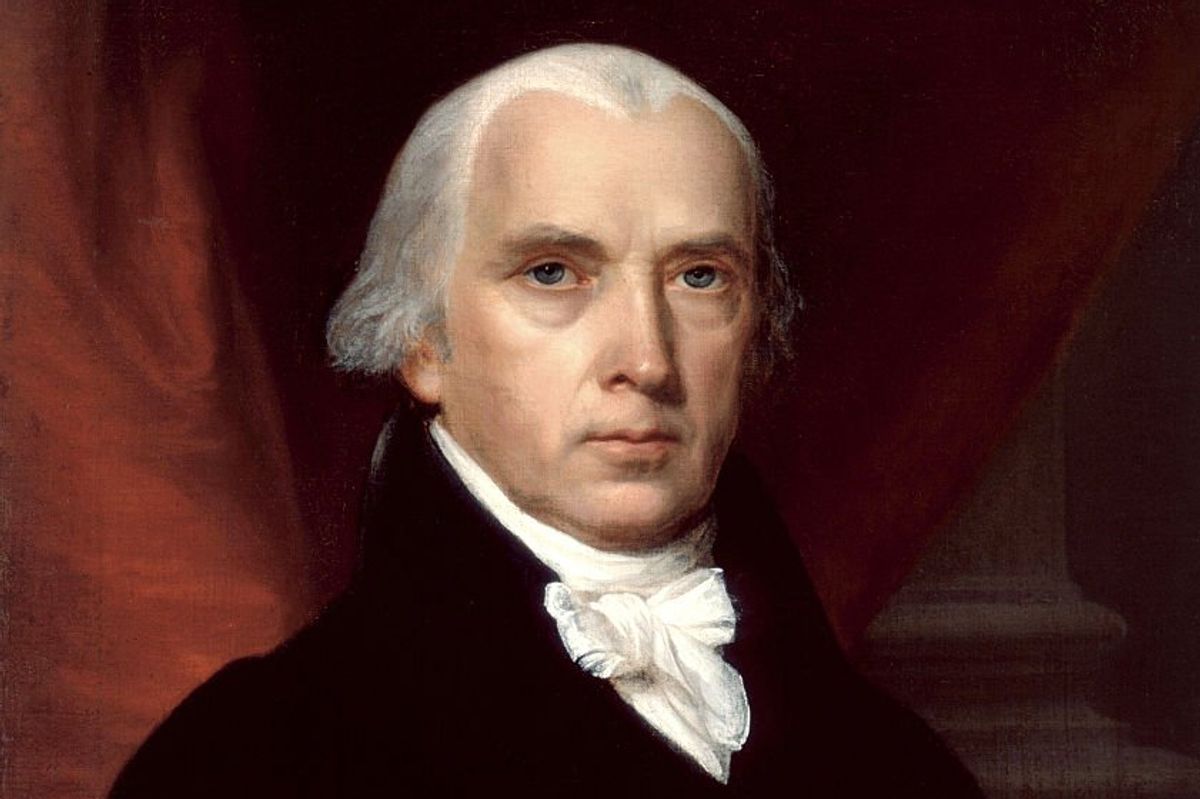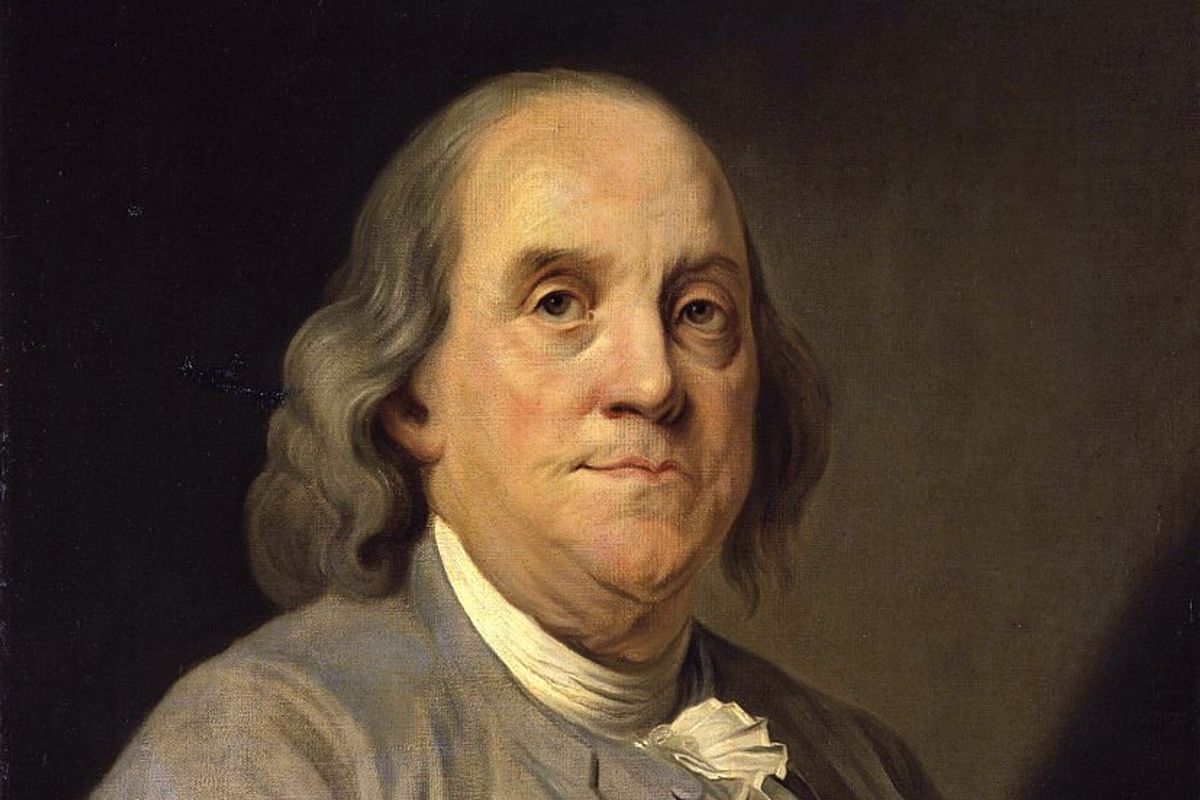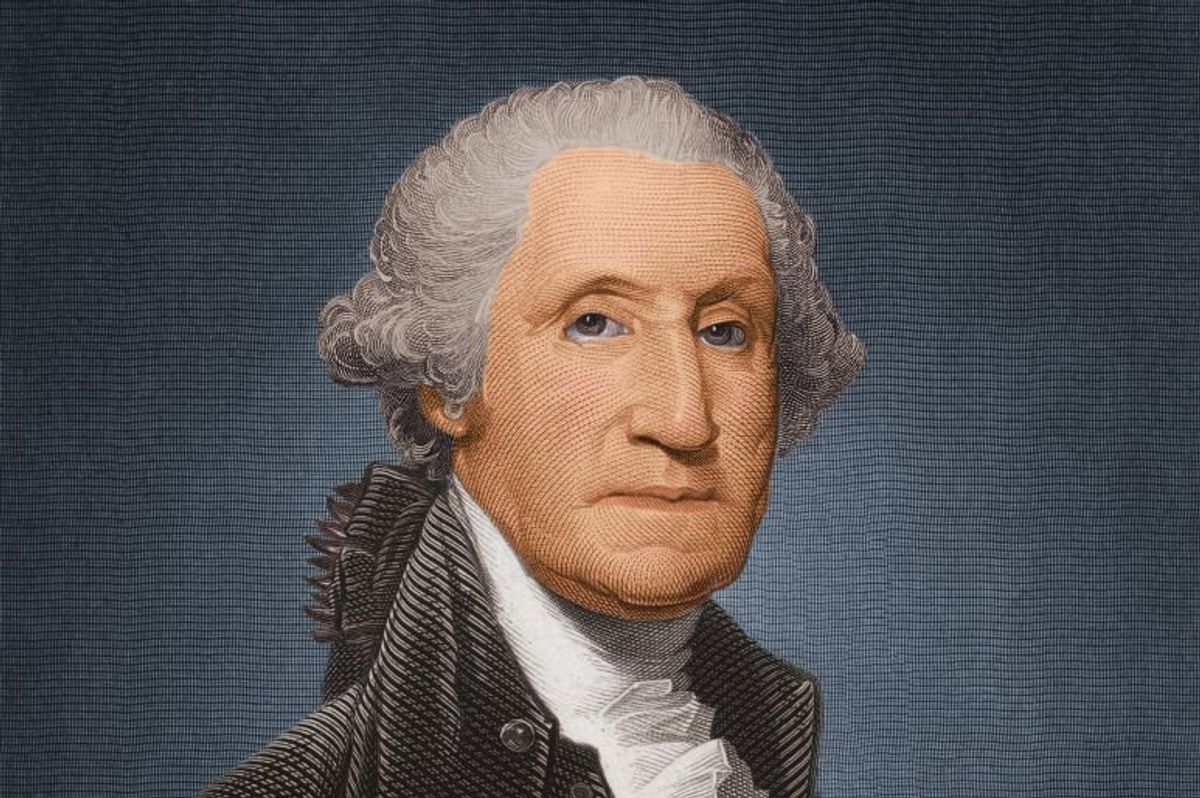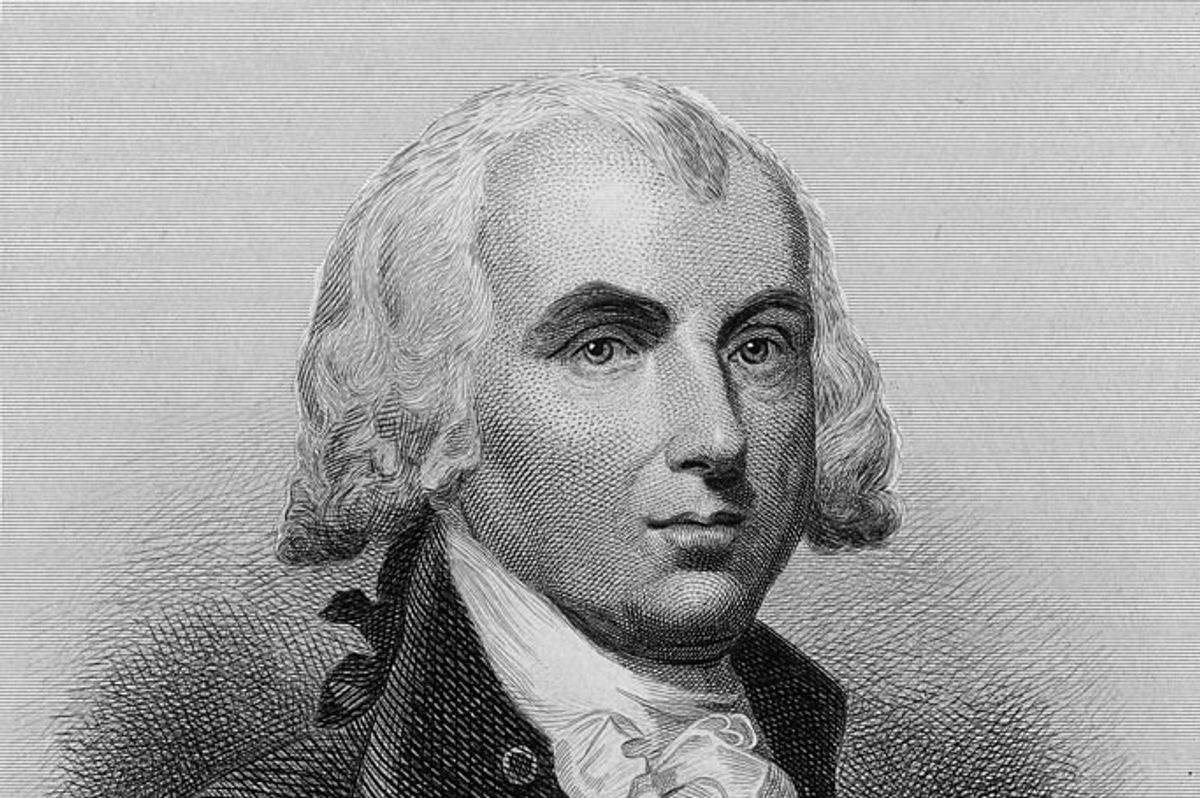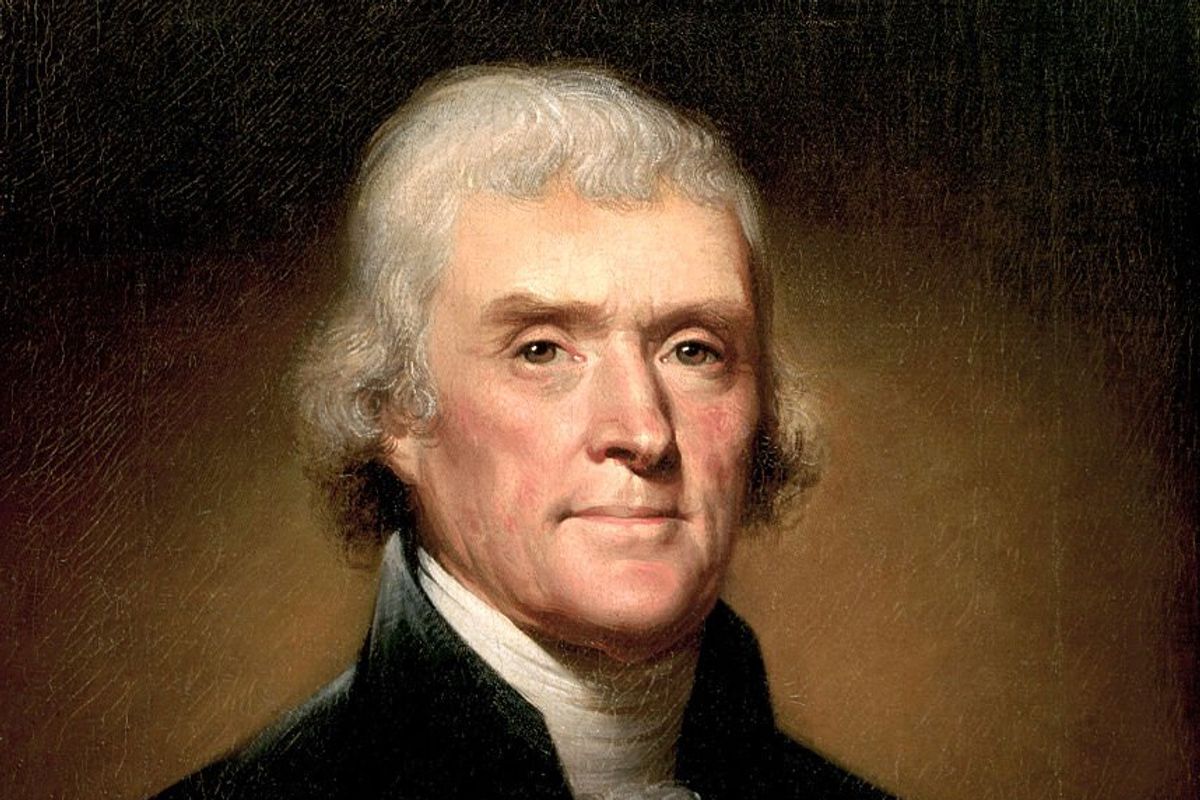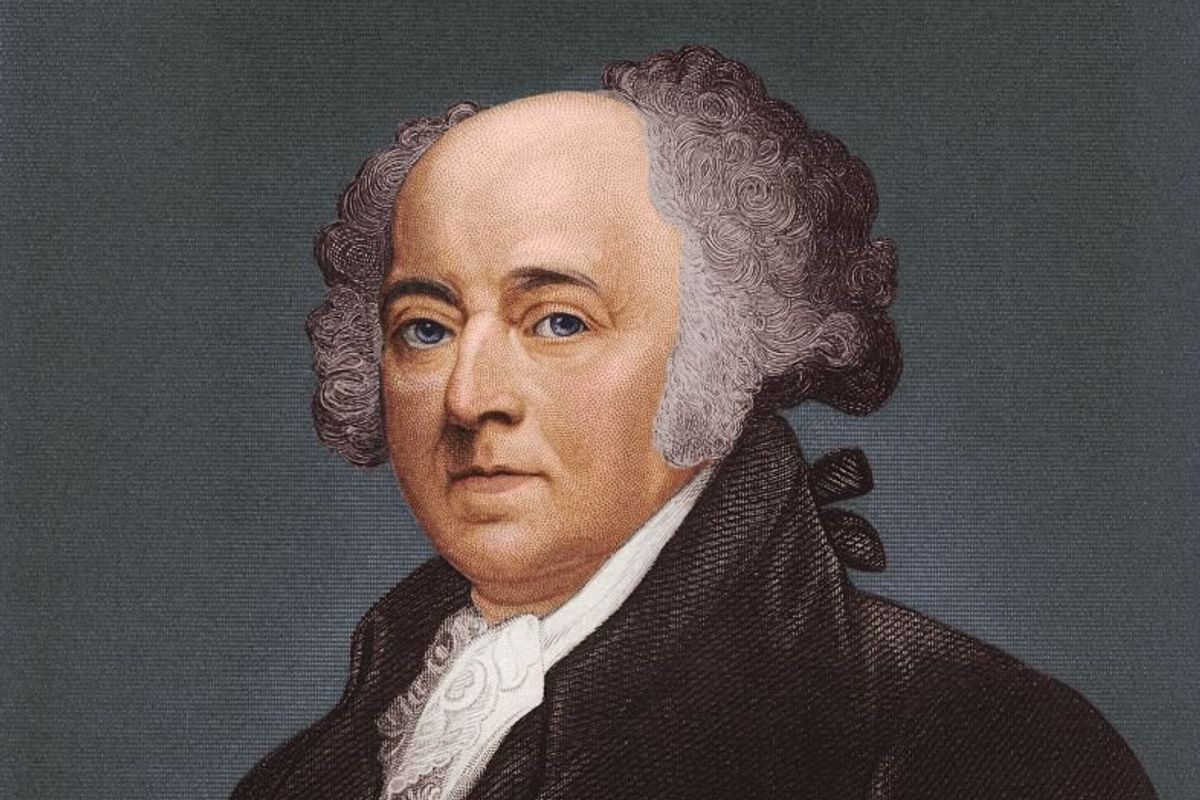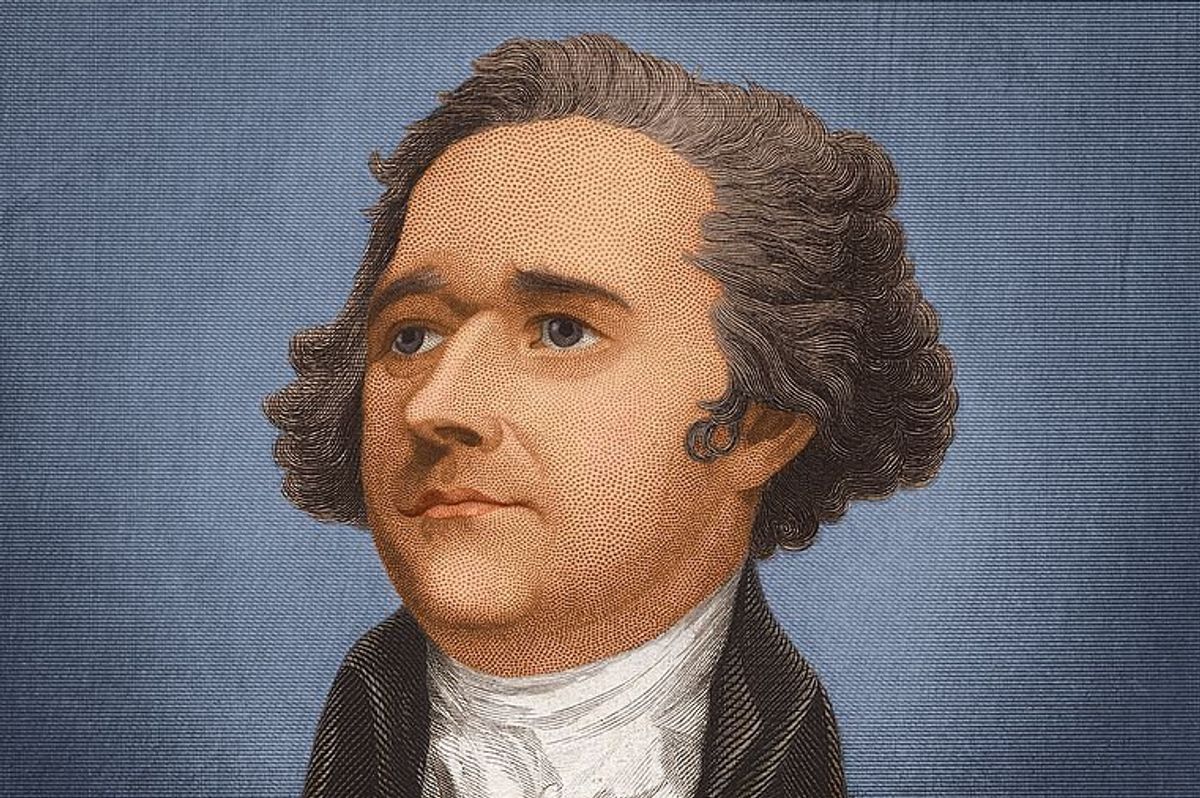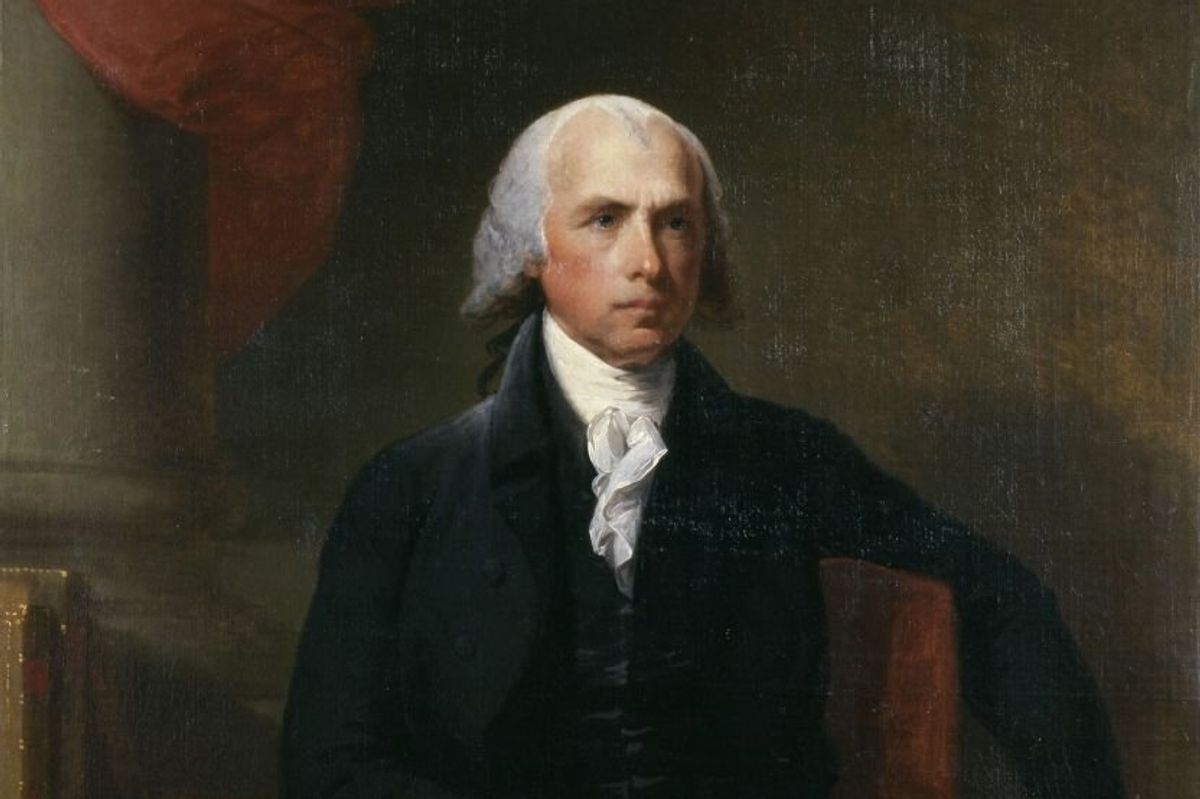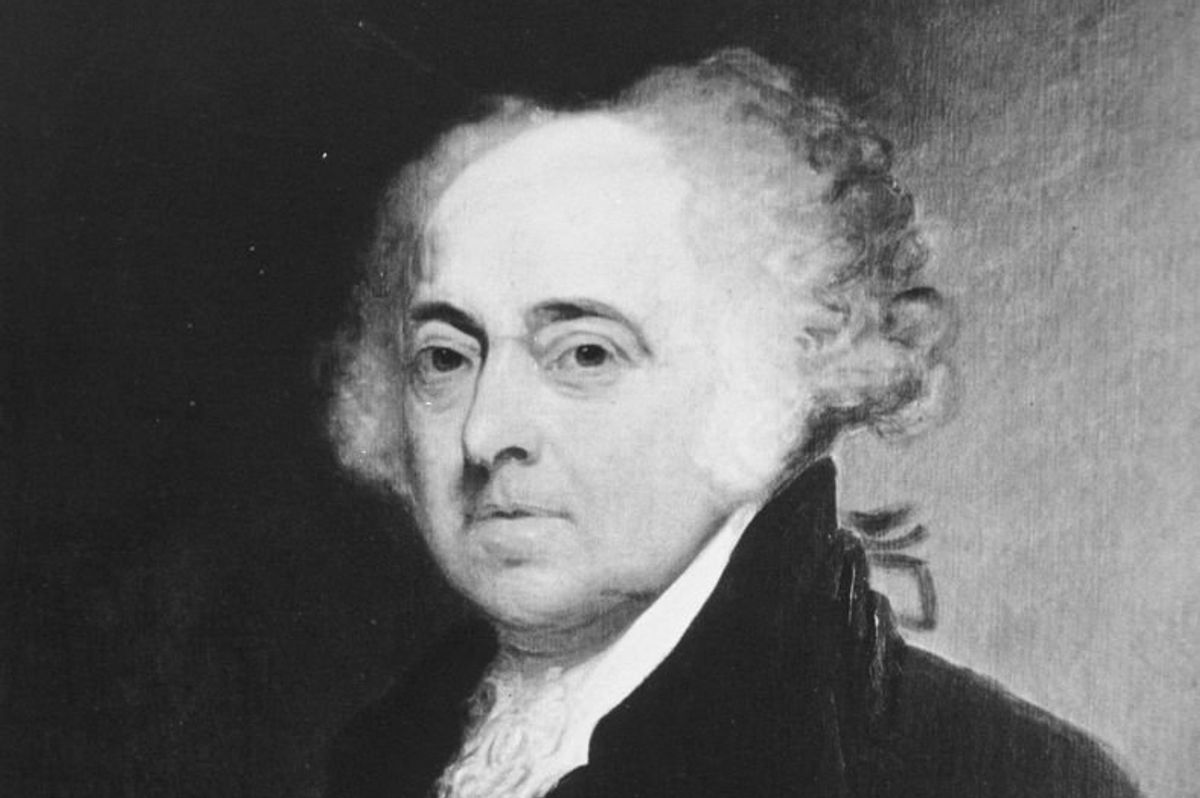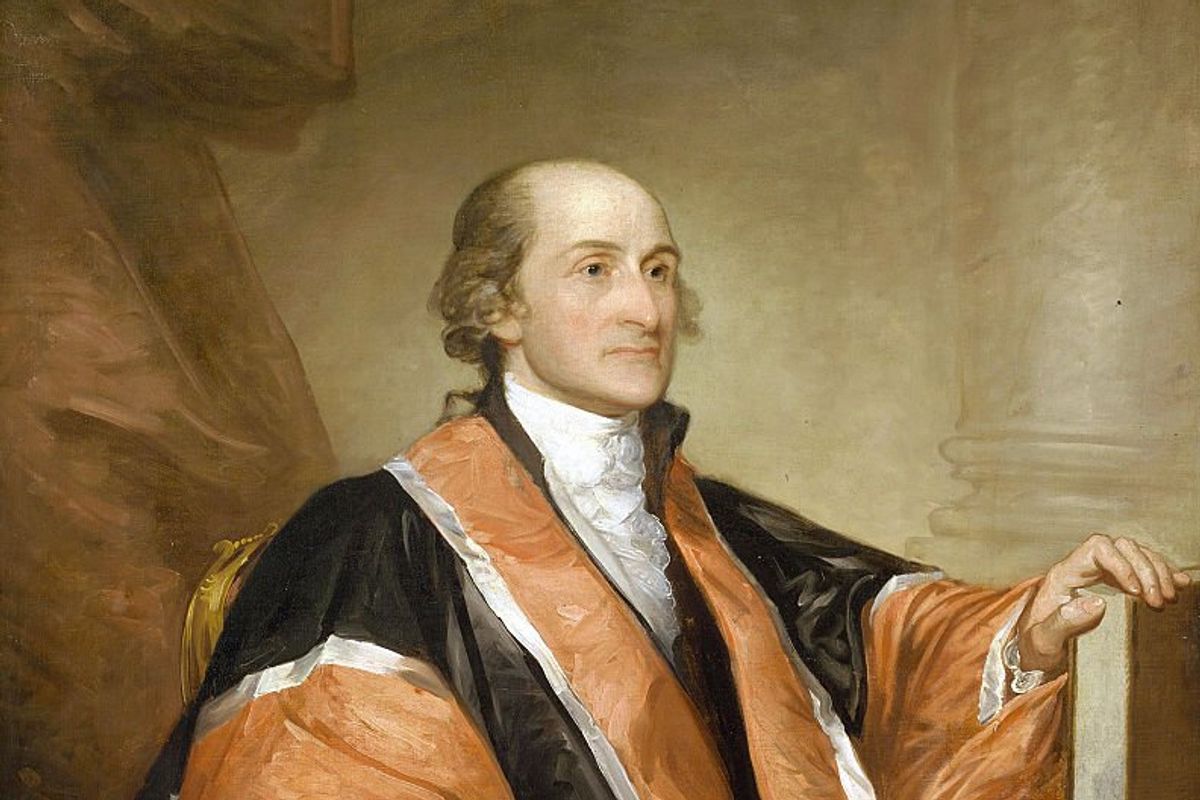GLENN: Time for an adult conversation. Time for -- time to get away from the -- the 144 characters for just a -- just a second and -- and actually have a conversation with some nuance.
We have Liz HEP Wolf joining us. She is the managing editor of Young Voices. She wrote an article in Playboy, or had an article in Playboy about the problem with categorizing white nationalists as terrorists.
Welcome, Liz, how are you?
LIZ: I'm doing well. Thank you so much, Glenn.
GLENN: Good.
Let's just start on a couple things. First of all, are you a white supremacist? Are you a white supremacist?
LIZ: I am definitely not.
GLENN: Okay. All right.
STU: You hesitated too long.
GLENN: Are you a nationalist?
LIZ: That's sort of hard to define. I don't think so, as a Libertarian.
GLENN: Right. So as a nationalist, as we were just talking about with Steve Bannon last night on 60 Minutes, he talked about the American system. And he specifically mentioned Henry Clay. And he said, "The American system is what made America great." I think it's the exact opposite. But here's what the Henry Clay system was: a tariff to protect and promote American industry, a national centralized bank, and federal subsidies for roads, canals, and other internal improvements. Plus, an American school. So basically, a federal -- federalized public school.
LIZ: Uh-huh.
GLENN: I don't know any real conservative or small government Libertarian that is for any of those things.
LIZ: Yeah. Exactly. Totally agree.
GLENN: So you -- in your article, you write about -- you have to fight white nationalism. But be careful not to designate them as terrorists. Why?
LIZ: Well, because whenever you expand government power and whenever you sort of mince words especially with political groups, I think it's really challenging. Because, essentially, you can make it so that you give the Trump administration the power to go after white nationalist groups, which the question of whether or not they'll actually do that is a whole 'nother thing. But then that power can just as easily be used to target left-leaning groups, it could just as easily be used to target Second Amendment groups. When you expand that government power and allow them to classify all sorts of domestic and somewhat political groups as terrorists, really, really bad things can happen.
GLENN: It's amazing to me that people don't get this with what's happening with DACA right now. The government said, "Hey, give us your information." So people did.
Now what's going to happen to all of that information? Now you've self-identified. And if Trump wanted to use that information, he could. If it's not him, somebody else will have that information.
You just -- you don't -- you don't like to expand the government and give it more information and more power. Because you don't know who is going to be next.
LIZ: Well, exactly. And I think a lot of people in my generation, sort of haven't done a good job of understanding that for every Obama administration where you give them expanded power, you know, then there's the other side in charge. Or, you know, if you particularly like George W. Bush, at the end of that administration, the Obama administration comes into power. And it's worth thinking, what are the long-term consequences of these expansions of power? I think they tend to be really bad.
GLENN: So how do we -- I don't understand how your generation, who unlike a lot of people my age, don't have faith in the next generation. I have tremendous faith in this next generation. And partly because we have to. I mean, you're the ones -- you're going to fix it. You're going to fix it.
STU: Yeah, we believe you because we have no other freaking choice.
(laughter)
GLENN: Well, no. But, I mean, that was part of it. Just like my parents had to have faith in me. You have to have faith in the next generation. But I also see that you instinctively get it. For instance, I can't convince people at all that the world is going to change. And really, you need to rethink your business entirely.
Today, I come in, and there's a story about Nordstrom's, how they're getting rid of all the clothing in Nordstrom's. Well, what's left? And it's because, as Nordstrom's says, the store is changing. The experience is different.
You guys see a different world where you're able to do whatever you want, create whatever you want. You don't need these big systems and big companies and everything else.
How is it you miss the connection in your generation between that freedom and big government?
LIZ: I'm really hopeful that it's something that we'll learn over time and learn through trial and error. Right? The more we make these mistakes, the more we'll suffer the consequences and realize, there's a problem when you expand the federal government's power.
I think that is really interesting what you're talking about, about how millennials are comfortable with various industries being disrupted. By new technology. By change. My evolution. But then they very much don't see that connection between, should you give some of that power back to the government? And I'm hopeful that as they see those -- the negative results that come from that, they'll realize, you know, as they get older and older, wait a second, that's not the world we want.
GLENN: What are you -- what are you seeing on the horizon, with people your age? And tell me about your organization.
LIZ: So my organization is an organization that works with a whole bunch of young writers. And they're typically politically independent. Some of them are more conservative. Some of them are more Libertarian. And we're really trying to get those messages of limited government, of increased freedom, of personal responsibility out there.
And so we work with a whole bunch of outlets. We have people publish in Daily Beast. We have people publish in Playboy. We have people in Washington Examiner, the American Conservative.
The whole concept is that there's no limit to the number of people and organizations that can carry this pro-freedom message. So I'm an editor, and I work to get their work, you know, in tip-top shape and published.
GLENN: And what are you seeing as the -- if things would melt down -- and, I mean, we're already starting to see colleges just -- it's a nightmare, what has happened, and the cost of college in the last ten years, alone, the debt that is coming. And everybody is being strapped to this.
When the government is standing there, and somebody like Bernie Sanders says, "I'll take care of you." Or on the other side, somebody like, you know, a Steve Bannon says, "I'll take care of you."
What's to stop your generation from saying, "Thank God somebody is going to step in?"
VOICE: I don't think there's much right now. I think you see people in my generation being obsessed with Bernie Sanders or not understanding that there is -- you know, there are always long-term consequences and unintended consequences to every decision that you make, whether it's on a personal level or on a government level, right?
And I think, you know, once people in my generation become taxpayers and realize, okay. We're investigating in college, we're ramping up the price of college, and we're having to foot the bill for that? I think they'll sort of begin to realize that maybe it's not the best investment. Maybe it's not the future they want. And I think they'll start to pursue a middle ground, hopefully.
STU: I like to be the person who is always negative on the program, so let me take the opposite side here. Because -- and this is an imperfect sort of comparison. But it reminds -- you know, September 11th is today. After that, there were a bunch of musical acts that came out and actors that came out and said things that conservatives, in particular, were like, "Shut up. Just do your job. Sing your songs. Do your acting. Stop talking about politics." And I felt that way too. I remember at that time. Then you got later on, then some conservative celebrities started coming out and they started saying things. And it felt awesome. Yes! You do it. Go for it.
And all the way to the point, at the end, where you've got Kid Rock potentially running for Senate. Donald Trump is the president of the United States. Conservatives apparently really do like when celebrities say things that they agree with.
And it's interesting because I think, like, with the government, it's the same way. Every -- it feels too good when you're in power to utilize the power. And so all the conservatives now are wanting to execute the same things that we complained about liberals doing years ago, when Obama was in power.
And I -- I don't know that there's enough people who can resist that temptation when it's put in front of them. I mean, do you have any hope on that front?
LIZ: Not as much as I would like.
STU: Yes. She's on my side. She's on my side.
GLENN: Trying to find some good -- can we find something positive here?
LIZ: Well, I think there's this issue of, we see growing tribalism. Right? When people on your side do it, you're like, "Yeah, we're the winning team." When people on the other side do it, you're like -- I mean, think about the number of people that hate Lena Dunham nowadays. I asked somebody, you know, he was writing on Lena Dunham the other day. And I was like, why do you dislike her? And he was like, I don't know. Like, she's a liberal. She was campaigning for Hillary, and she lives in Brooklyn. And I was like, well, that alone isn't necessarily bad enough to hate somebody. I can think of all sorts of other reasons. But that alone is not good enough.
GLENN: Right.
STU: Her show is a good reason, for example.
GLENN: Why just hate people? Racism is so stupid. Get to know people. Know why you despise them for specific reasons.
LIZ: Like you can definitely find reasons. Like super easy ones.
GLENN: Once you get to know me, I can give you 100 reasons. Why stop at the surface? So what is the Libertarian message that is sexy?
I mean, what is the thing that -- that will sell, when you've got all kinds of problems? What's the thing that's going to make people -- the millennials say, "Yeah. That's me. I'm in?"
LIZ: Well, so far, we haven't found it. Marijuana legalization didn't seem to work.
GLENN: Yeah.
LIZ: I think in general, focusing on how expanded power can hurt people on both sides. It's not just going to come back and hurt the neo-Nazis, you know, the ones who are really easy to identify as the bad guys. I mean, we've seen the FBI target the Black Panthers in the past. We've seen them target anti-war activists. We've seen them target animal rights activists, for crying out loud.
And so appealing to people and letting them know, you know, when you expand government power, it can be used to target the obvious bad guys. It can also be used to target lots of other groups -- I mean, especially left-leaning groups would find those groups very sympathetic, right? So it's important to sort of drive that point home.
GLENN: Where is the line? Where is the line? Because, you know, you mentioned the Black Panthers or animal activist groups. I can't remember -- you might remember, Stu. About ten years ago, there was this really nasty virulent animal activist group that was engaged in terror.
STU: Named after a wonderful alien from '80s sitcoms, Alf.
GLENN: That's right. That's right. Alf. So where is the line? Where is the line of saying, "This group we do need to --
LIZ: Well, I don't know. But I think that's the precise reason why up until now, we've been so hesitant to label domestic terrorist groups as terrorist groups. We're comfortable labeling international terrorist groups as that, because we have a more clearly defined set of criteria. With domestic groups, it's really, really difficult to draw that line. It's difficult. One person's, you know, Black Panther terrorist group could be another person's political group. One person could see the NRA as terrorists for some reason, whereas others see them as exercising their Second Amendment rights, that, you know, they're given in the Constitution.
And I think that's precisely the issue, that it's so hard to draw that line. And so I err on the side of not letting anybody in any position of power draw that line, at least right now, especially when it's so politically motivated.
STU: It's interesting to me too. Because these are big issues. The article you wrote about, white supremacy, it's hard to come up with a bigger one than that. But even with just like basic economic foundations.
When we talked about -- you know, growing up -- before the internet, right? There was a lot of things to believe, that conservatism would be good for the economy. A lot of things to believe that economic freedom is a moral principled stand. But it's so much easier now to understand it. With the internet. With Uber. With all of these services that are outside of any structure, that develop on their own, and that are all the things that millennials like the best.
GLENN: Yes. How are you --
STU: And yet, they're like, we need more government control. I cannot understand it. I can't get past it.
LIZ: Yeah, I mean, my home city of Austin, they were regulating and making it horribly and it's like, wait a second. Millennials it means after a night out of drink, what's not like to like there? But it's amazing. They still feel like we should fall for increased regulation in all these areas. I don't get it.
STU: Yeah. I don't get it.
GLENN: Thank you so much, Liz. That is Liz Wolf.

 Corey Comperatore's firefighting gear outside the Buffalo Township Volunteer Fire Company. The Washington Post / Contributor | Getty Images
Corey Comperatore's firefighting gear outside the Buffalo Township Volunteer Fire Company. The Washington Post / Contributor | Getty Images Corey_Comper/X
Corey_Comper/X











